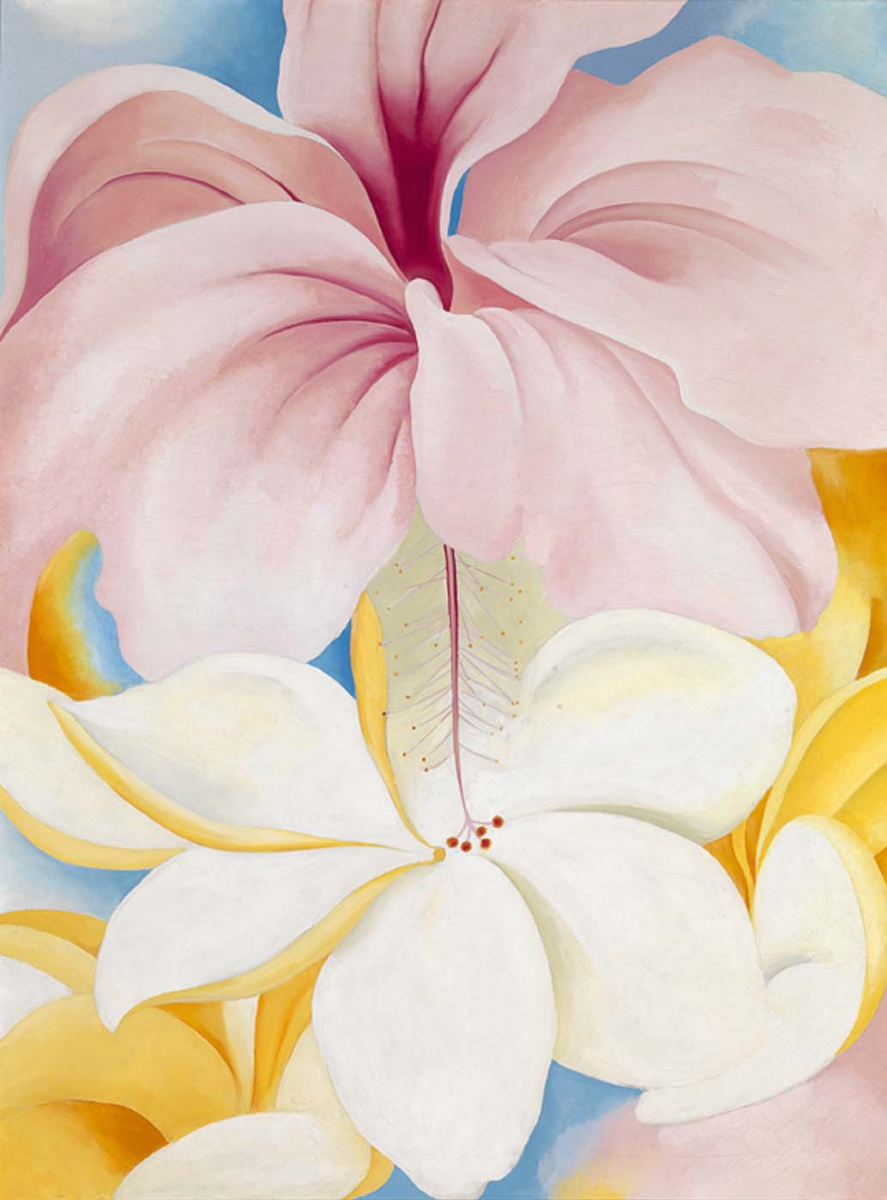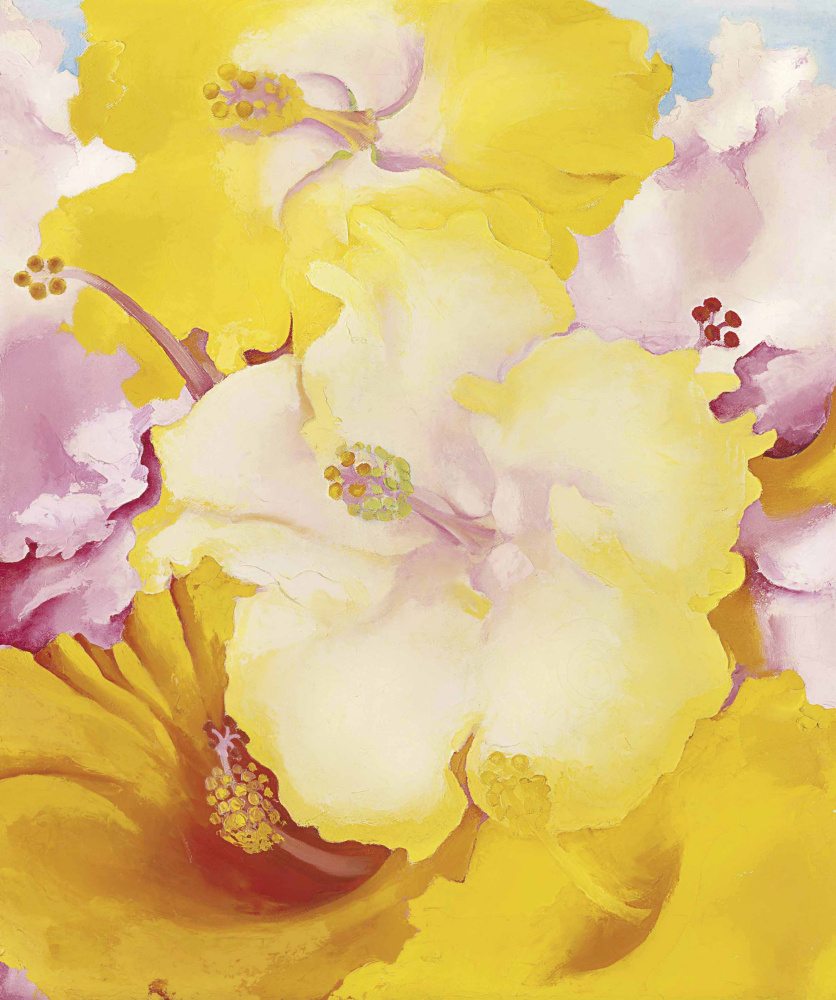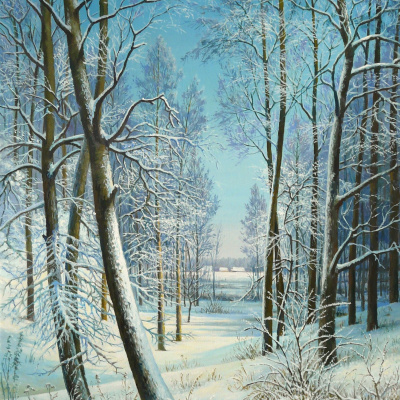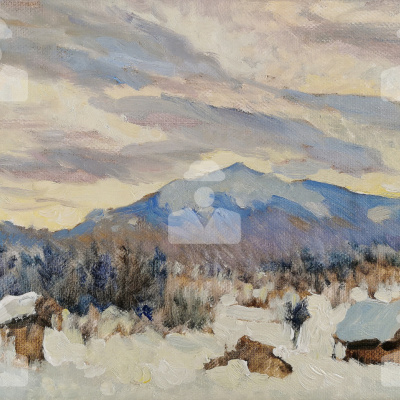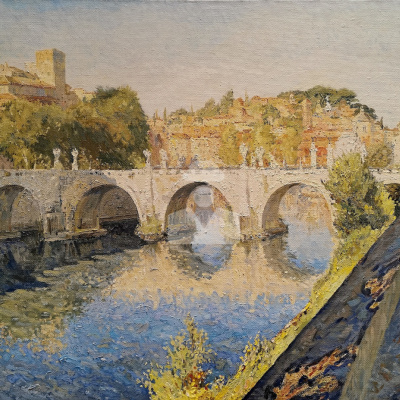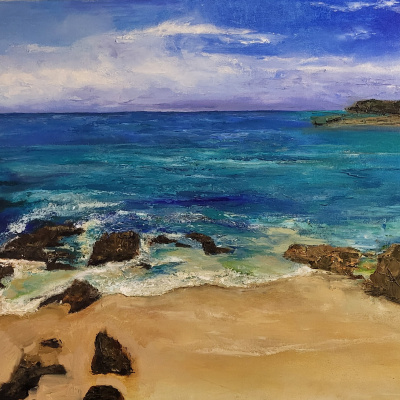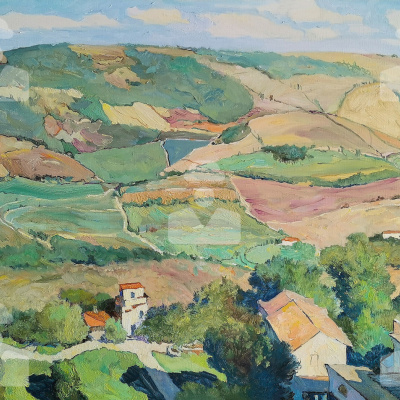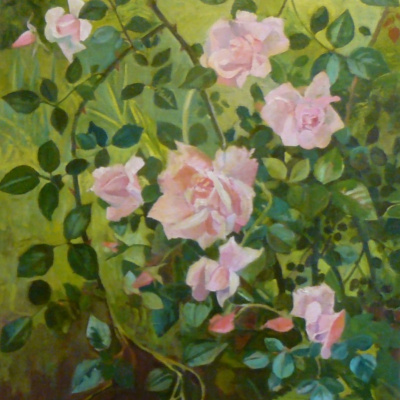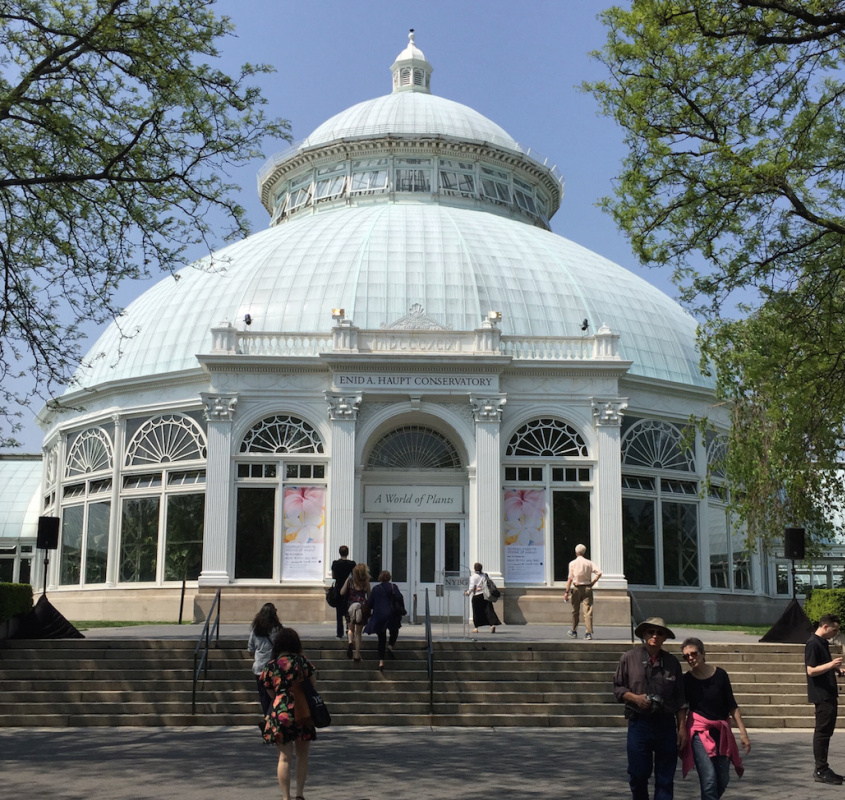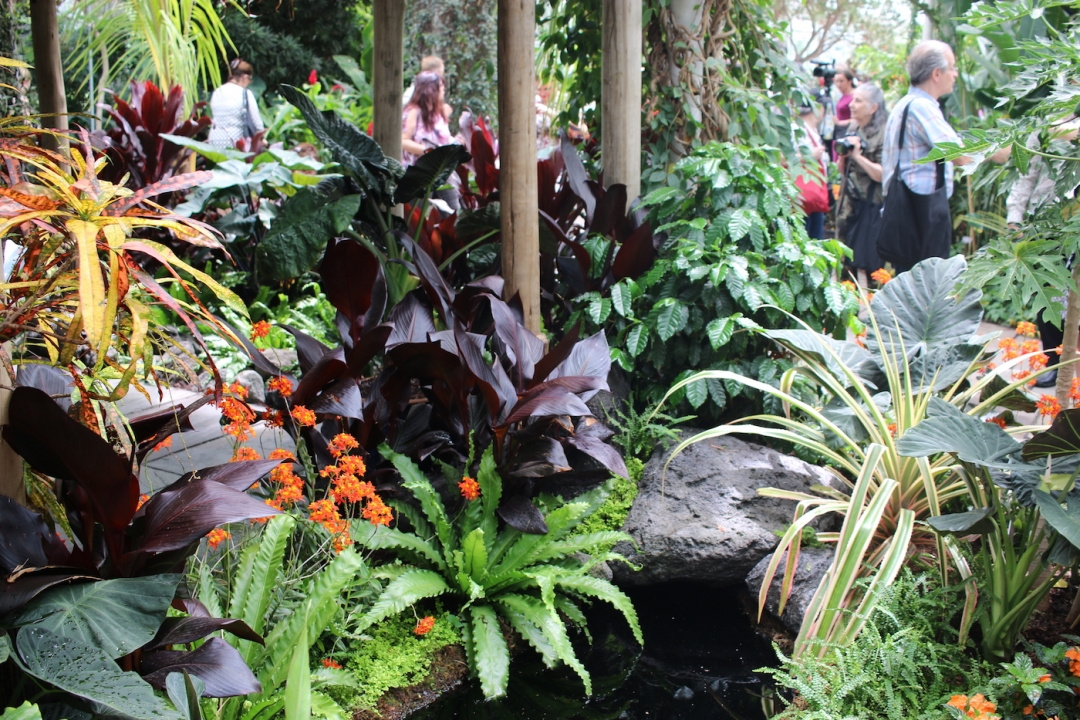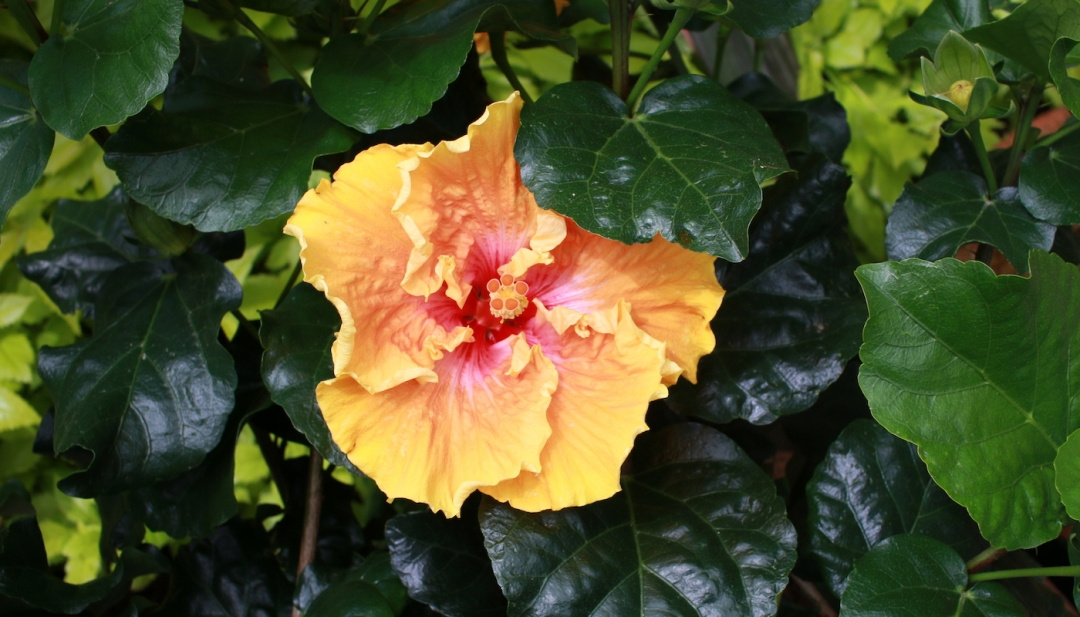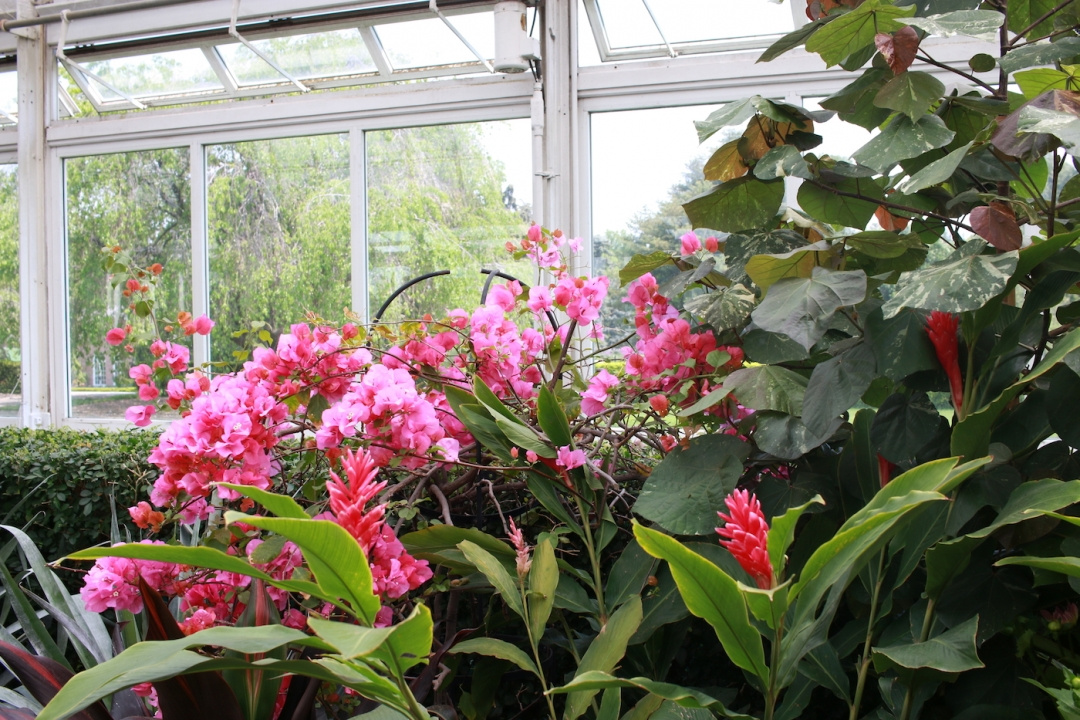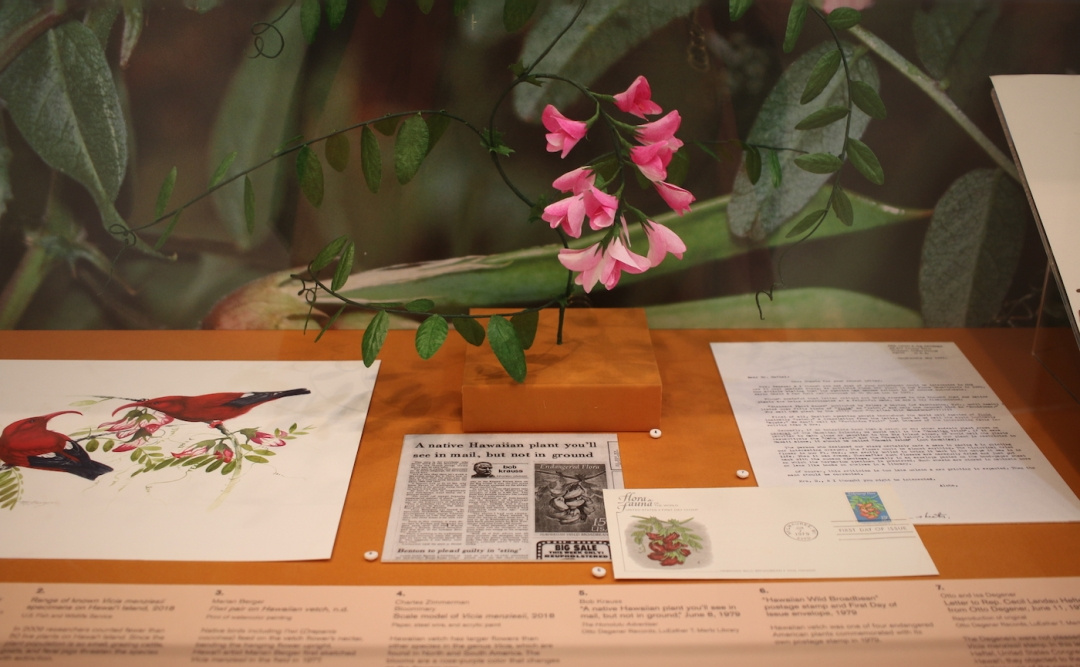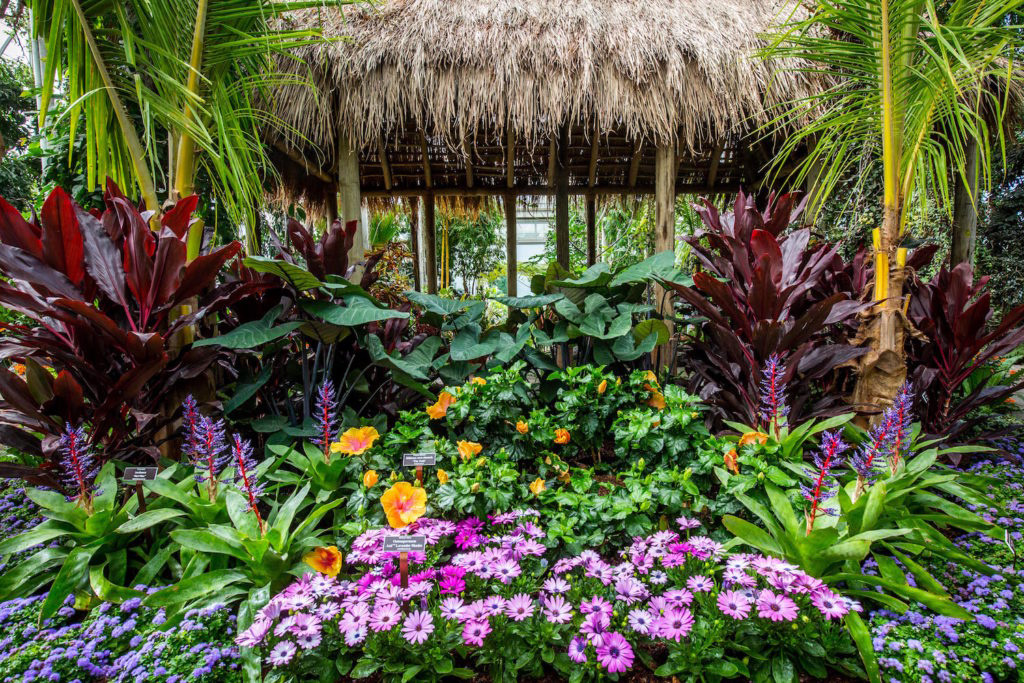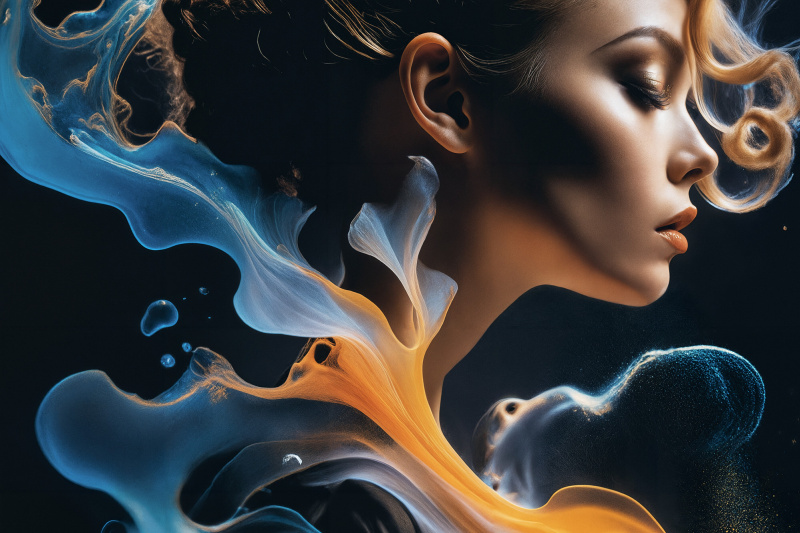Georgia O’Keeffe wasn’t particularly interested in visiting Hawaii, but when she was offered an all-expenses paid trip there in 1939, she couldn’t turn it down. Though the artist only spent nine weeks visiting the island paradise, tasked with making two ads for Dole pineapples, she completed no fewer than 20 paintings, an oft-forgotten body of work that takes center stage at the New York Botanical Garden this summer. Everyone could discover the artist’s little-known depictions of the Hawaiian Islands—and the plants and landscapes that inspired them.
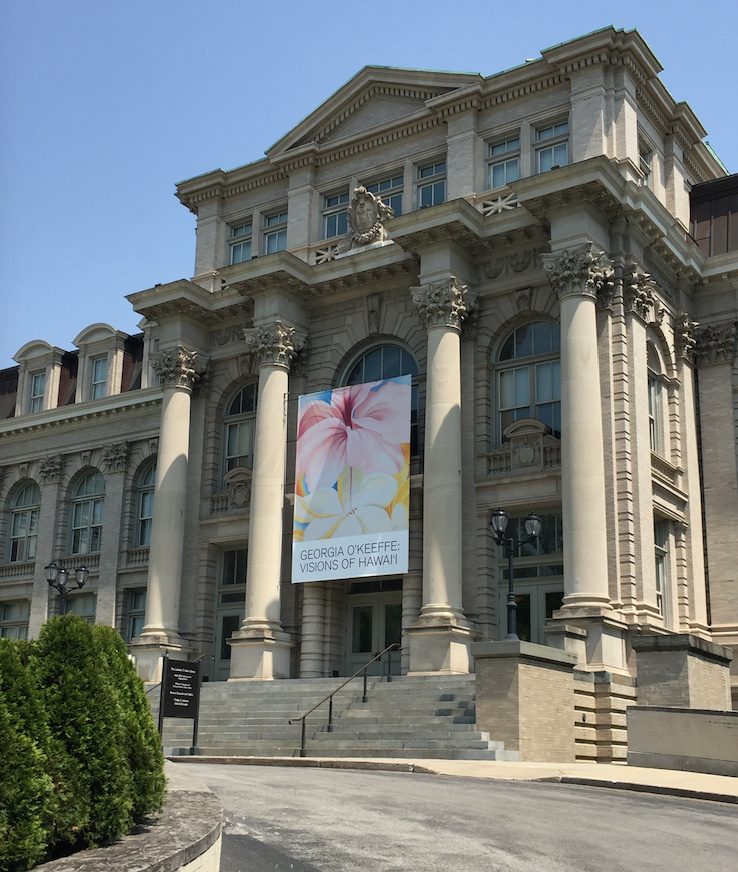
Pioneering American modernist Georgia O’Keeffe (1887−1986) conveyed a distinct sense of place with innovative depictions of her surroundings, from stark New Mexican landscapes to New York cityscapes. Yet flowers and plants were subjects that engaged O’Keeffe throughout her career. Curated by Theresa Papanikolas, Ph.D., of the Honolulu Museum of Art, this landmark exhibition offers a rare focus on 20 of O’Keeffe’s depictions of Hawai‘i from a nine-week sojourn in 1939 while on commission to produce images for a Hawaiian Pineapple Company promotional campaign.
Hibiscus and plumeria
1939, 101.6×76.2 cm
On the island of Maui, O’Keeffe drew inspiration from the coast’s volcanic landscape
, frozen lava flows juxtaposed with the crashing ocean waves. She had learned to drive in her beloved New Mexico, a skill that served her well in Hawaii, where, with her 12-year-old guide, she clambered over rocks to explore remote regions, painting as she went. The same sense of alien beauty that she so famously captured in her New Mexico landscapes permeates these canvases.

Works from Georgia O’Keeffe’s Waterfall series (1939)
Ironically, the one thing that O’Keeffe neglected to paint was a pineapple. After the trip, she turned two pieces into Dole, then known as the Hawaiian Pineapple Company: Heliconia, Crab’s Claw Ginger and Papaya Tree, ‘Íao Valley, Maui.
"The papaya tree, needless to say, was rejected because the papaya was the rival fruit to the pineapple," said Papanikolas. Upon her return to New York, Dole sent her a pineapple so she could finish the assignment. All three canvases are on view at the NYBG, plus copies of the final ads as they appeared in the Saturday Evening Post and Women’s Home Companion.
"The papaya tree, needless to say, was rejected because the papaya was the rival fruit to the pineapple," said Papanikolas. Upon her return to New York, Dole sent her a pineapple so she could finish the assignment. All three canvases are on view at the NYBG, plus copies of the final ads as they appeared in the Saturday Evening Post and Women’s Home Companion.

Advertisements for Hawaiian Pineapple Company (now known as Dole) featuring O’Keeffe’s work in print magazines
The new summer show at New York Botanical Garden, Georgia O’Keeffe: Visions of Hawai’i, consists of a selection of paintings (17 out of the 20 she produced) and the recreation, within the Enid A. Haupt Conservatory, of a typical Hawaiian "paradise" (a mixture of native flora
and plants that were brought to the islands over the centuries). Visions of Hawai’i highlights the way nature informed O’Keeffe’s artistic production while she was in Hawai’i.
These paintings had not be seen together in New York since their debut in 1940—spotlight a transformative experience in the legendary artist’s life, revealing O’Keeffe’s deeply felt impressions and the enduring influence of the Islands' dramatic landscapes and exotic plants.
These paintings had not be seen together in New York since their debut in 1940—spotlight a transformative experience in the legendary artist’s life, revealing O’Keeffe’s deeply felt impressions and the enduring influence of the Islands' dramatic landscapes and exotic plants.
Hibiscus, sold for $4.8 million at Tuesday night’s American art sale at Christie’s may be included in subsequent stops on the show’s tour—the exhibition showcases the flowers and plants of Hawaii that so inspired the artist.
The garden’s central conservatory has been transformed into a tropical paradise, full of rare Hawaiian plants, many of which are on loan from Hawaii’s National Tropical Botanical Garden. Also included is a traditional thatched hale structure by Broadway set designer Scott Hass.
What O’Keeffe might have been surprised to learn, however, was that none of the flowers she painted were actually native to Hawaii. Pineapple, hibiscus, bougainvillea, plumeria, and many of the other plants that we typically associate with the Hawaiian islands were actually brought there by mankind.
"If you were to have gardens of only native Hawaiian plants, it would look nothing like the Hawaii O’Keeffe painted," said NYBG interpretive specialist Victoria Lewis.
"If you were to have gardens of only native Hawaiian plants, it would look nothing like the Hawaii O’Keeffe painted," said NYBG interpretive specialist Victoria Lewis.

Georgia O’Keeffe, "Pink Ornamental Banana" and "Heliconia" (both 1939)
The islands' current vegetation includes two waves of imported plant life: the so-called canoe plants, brought from Polynesia some 1,500 years ago by Hawaii’s first settlers, and those introduced by Westerners following the arrival of Captain Cook in the late 18th century.
Of the islands' 1,200 native species of plant life, 90 percent are endemic, meaning that they grow nowhere else in the world. Half are endangered. This posed a challenge for the show’s organizers, cause it cannot be shipped. Gorgeous paper sculptures, created by the NYBG botanist and artist Charles Zimmerman, stand in for some of the more exotic varieties that were impossible to source.
Of the islands' 1,200 native species of plant life, 90 percent are endemic, meaning that they grow nowhere else in the world. Half are endangered. This posed a challenge for the show’s organizers, cause it cannot be shipped. Gorgeous paper sculptures, created by the NYBG botanist and artist Charles Zimmerman, stand in for some of the more exotic varieties that were impossible to source.

Georgia O’Keeffe, "Fishhook from Hawai’i No. 1" and "Papaya Tree" (both 1939)
Georgia O’Keeffe: Visions of Hawai’i continues at the New York Botanical Garden (2900 Southern Boulevard, Bronx) through October 28.
Based on materials from Artnet.
Title illustration: nybg.org
Title illustration: nybg.org






